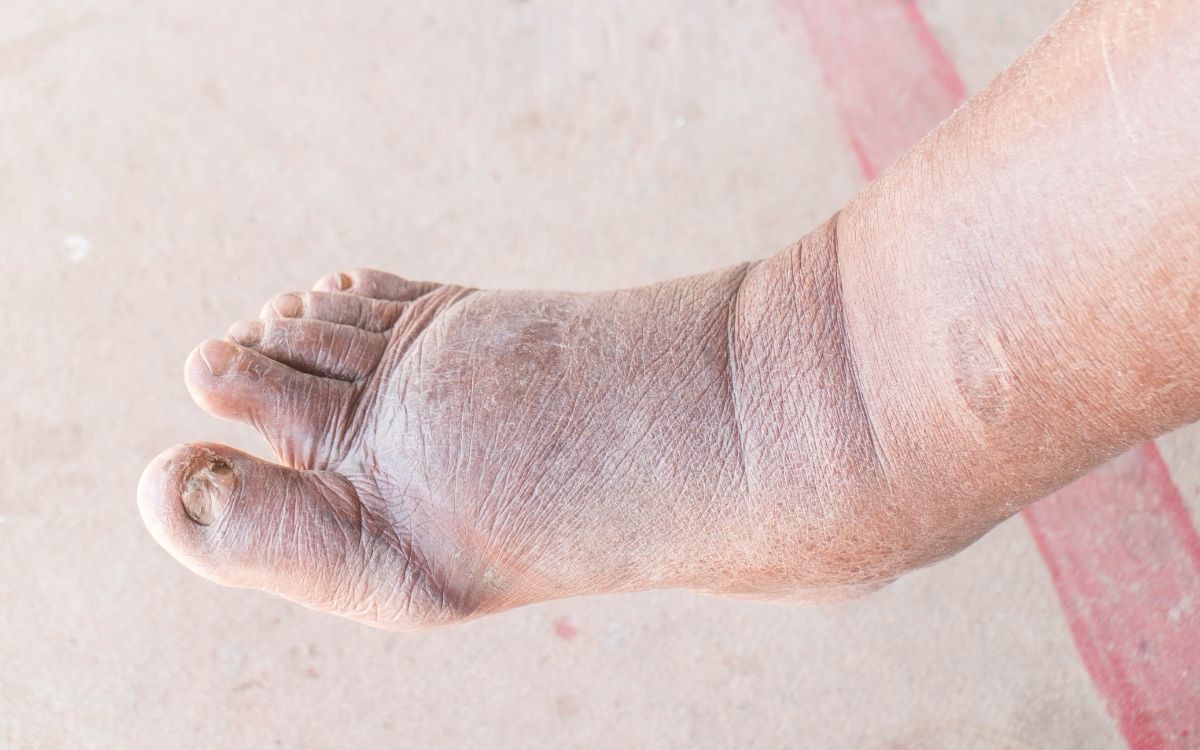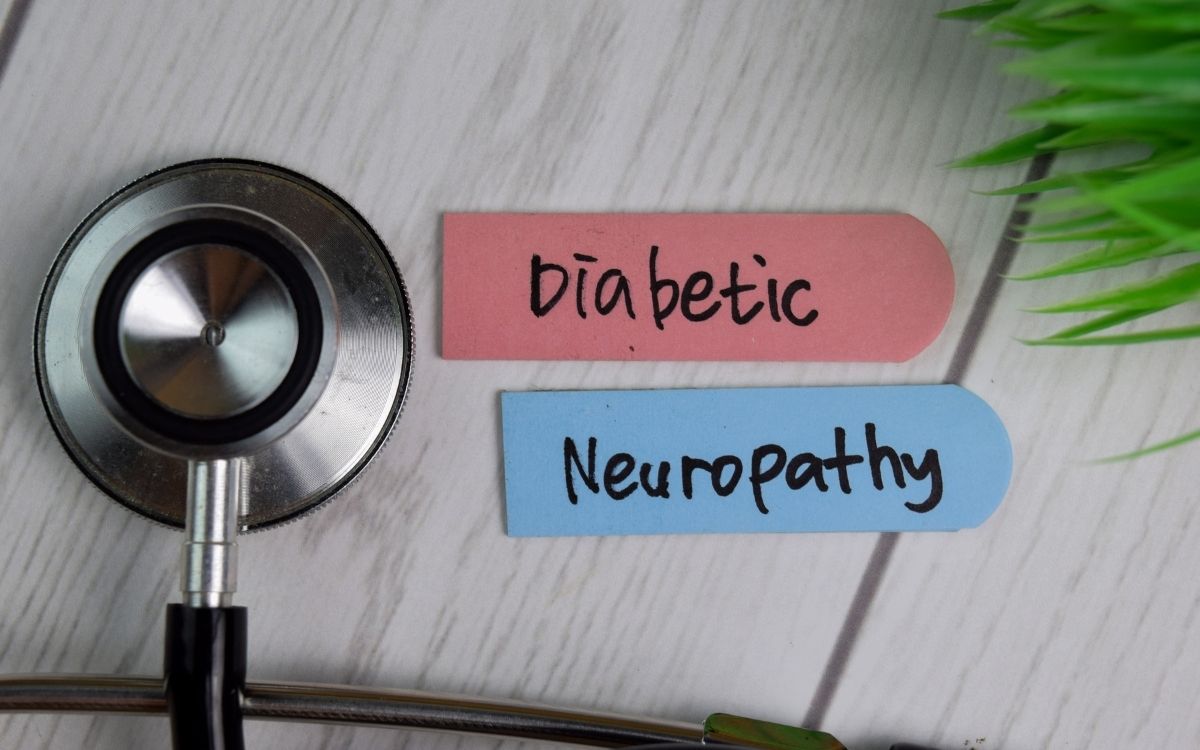Diabetic neuropathy is a condition that results from nerve damage caused by diabetes. It can cause a wide range of symptoms, ranging from mild tingling and numbness to more severe problems such as pain, burning, and loss of sensation.
While there is no cure for diabetic neuropathy, there are treatments that can help lessen the symptoms. In some cases, diabetic neuropathy may even be reversible.
Read on to learn more about diabetic neuropathy and how you may be able to improve your symptoms.
Diabetic Neuropathy: The Basics
Neuropathy is a condition that involves nerve damage. Diabetic neuropathy specifically occurs when the high blood sugar associated with diabetes damages nerves.
The most common type of diabetic neuropathy causes pain, numbness, tingling, or other unpleasant symptoms in the hands and feet. Symptoms can also occur in the arms, legs, stomach, and other parts of the body.
Diabetic neuropathy is one of the most common complications of diabetes. It can affect almost every system in your body if it’s not treated. For example, diabetic neuropathy may cause problems with digestion or make it difficult for you to sleep at night.
Diabetic neuropathy can also make it harder for your body to heal wounds or fight infection. So, even a small cut could lead to an ulcer that requires medical treatment.
What Causes Diabetic Neuropathy?

High blood sugar causes most cases of diabetic neuropathy. When you have diabetes, your body has trouble moving blood sugar into the cells where it’s used for energy. This leads to higher than normal amounts of sugar in your blood.
Over time, this high level of blood sugar can damage the small nerves that are involved with pain sensation and muscle function (called the peripheral nerves). Some people may develop more pain and numbness than others. But, if you have diabetes, you’re at risk for developing diabetic neuropathy.
What Are the Symptoms of Diabetic Neuropathy?
Different types of diabetic neuropathy cause different symptoms:
- Pain is very common with this form of neuropathy. Almost everyone with this type of neuropathy has some pain. Most people have a constant burning or aching in the feet, legs, and toes. In some cases, the pain may be so bad that it interrupts your sleep at night.
- Numbness is another common symptom. Many people with diabetic neuropathy have tingling or an uneasy feeling in the hands and feet. Some people experience numbness in specific areas, such as their fingers, toes, or heels.
- Muscle weakness causes problems with coordination and balance.
- Loss of touch sensation (called hypoesthesia) may cause unsafe situations. For example, without feeling it, you may injure your feet while walking.
- Problems with digestion and changes in sexual function (decreased sex drive or impotence) are also possible.
How is Diabetic Neuropathy Diagnosed?
It can be difficult to diagnose neuropathy if your symptoms aren’t very severe. Your doctor will start by asking you about your medical history and doing a physical exam.
You may be asked questions about your eating, sleeping, and pain habits. Your doctor will also check for muscle weakness, loss of touch sensation in the feet, and other possible problems with feeling or movement.
Your doctor may do a few tests to help diagnose diabetic neuropathy if you have severe symptoms. Or they may suggest doing one or more of these tests if you have milder symptoms or if your doctor suspects another problem may be causing your symptoms.
Electrodiagnostic tests are usually used to diagnose diabetic neuropathy. These include electromyography (EMG) and nerve conduction velocity (NCV) testing.
An EMG is a test that records the electrical activity of your muscles. An NCV test measures the speed of signals sent through your nerves.
You may also have an ultrasound or magnetic resonance imaging (MRI) to look for nerve damage, especially if you have pain that isn’t relieved by medicine or other treatments.
| You May Also Like
GlucoTrust Reviews: Does It Work? Diabetes Supplement (therealrealreviews.com) Mango Leaves for Diabetes Treatment (therealrealreviews.com) |
How Is Diabetic Neuropathy Treated?
There’s no cure for neuropathy. But you can take steps to control your symptoms and reduce the risk of complications.
Medications are often used to help manage diabetic neuropathy pain. These include medicines that treat depression, nausea, anxiety, sleeping problems, and other conditions. Your doctor may suggest over-the-counter medications for pain or other symptoms as well as prescription medicines.
You may need to take more than one medication. Or you may need to take a combination of prescription and over-the-counter painkillers as well as antidepressants or other types of medications.
If your symptoms are very severe, your doctor may recommend surgery to relieve some of the pain and help improve your quality of life.
If you’ve had diabetes for many years, your eyes, kidneys, and feet may be affected. Early treatment is very important to prevent these complications. If you have diabetic neuropathy, follow your doctor’s recommendations for managing your blood sugar levels.
Seek immediate medical attention if you have any of the following symptoms:
- Numbness or weakness in your feet, legs, or hands
- Severe pain in your feet or legs
- Pain that makes it difficult to get around or do your daily activities
- Burning, aching, or prickling pain in your lower back and hips
- Trouble passing urine (pee)
The symptoms of diabetic neuropathy may resemble other medical conditions or problems. Always see your doctor for a diagnosis.
Related Post
How Can I Control My Blood Sugar Naturally (therealrealreviews.com)
Altai Balance Diabetes Supplement Review: Does It Work? (therealrealreviews.com)
